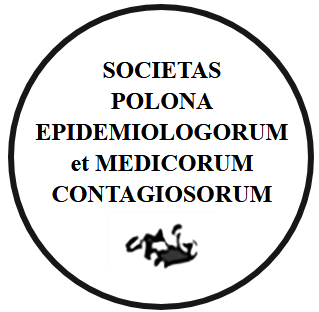REVIEW PAPER
Kazimierz Funk: Polish vitamins' discoverer
1
Katedra i Zakład Anatomii Prawidłowej, Wydział Nauk Medycznych w Katowicach, Śląski Uniwersytet Medyczny w Katowicach, Polska
These authors had equal contribution to this work
Submission date: 2024-02-24
Final revision date: 2024-04-07
Acceptance date: 2024-04-16
Online publication date: 2024-04-30
Publication date: 2024-06-07
Corresponding author
Konrad Barszczewski
Katedra i Zakład Anatomii Prawidłowej, Wydział Nauk Medycznych w Katowicach, Śląski Uniwersytet Medyczny w Katowicach, Polska
Katedra i Zakład Anatomii Prawidłowej, Wydział Nauk Medycznych w Katowicach, Śląski Uniwersytet Medyczny w Katowicach, Polska
Przegl Epidemiol 2024;78(1):107-115
KEYWORDS
TOPICS
ABSTRACT
Kazimierz Funk, born on February 23, 1884, in Warsaw, demonstrated an early inclination toward the field of human physiology. He charted his scientific trajectory within esteemed European scientific institutions, commencing at the age of 16 in Geneva, where he pursued studies in natural sciences. Subsequently, he continued his academic endeavors in Bern, culminating in the attainment of his doctorate in 1904. Following this, Funk relocated to Paris and secured a position at the Pasteur Institute. In France, his research concentrated on elucidating the role of trace elements in the human body. In 1906 he transitioned to Berlin, collaborating with Hermann Fisher (1852-1919) to investigate proteins and cancer processes. In 1910, Funk ventured to London, joining the Lister Institute, where he initiated research on beriberi disease. His investigations led to the isolation of a substance pivotal in treating the ailment, which he termed "vitamin" (derived from 'vita' meaning life and 'amine' indicating a nitrogen-containing compound). Despite four nominations for the Nobel Prize (in 1914, 1925, 1926, and 1946), Kazimierz Funk didn’t receive the prestigious accolade. In 1925, at the urging of Dr. Ludwik Rajchman (1881-1965), the director of the National Institute of Hygiene, Funk assumed the directorship of the Biochemistry and Hygiene of Nutrition Branch at the National School of Hygiene. Under Funk's guidance, Poland became the third European country to produce insulin. Kazimierz Funk passed away on November 19, 1967, in New York City, at the age of 83. His significant contributions to the fields of biochemistry and nutrition endure as a testament to his enduring impact on scientific understanding. This proposal aims to condense and emphasise Kazimierz Funk's diverse scientific interests and the various scientific teams and sites he collaborated with, which ultimately led to his groundbreaking discover.
We process personal data collected when visiting the website. The function of obtaining information about users and their behavior is carried out by voluntarily entered information in forms and saving cookies in end devices. Data, including cookies, are used to provide services, improve the user experience and to analyze the traffic in accordance with the Privacy policy. Data are also collected and processed by Google Analytics tool (more).
You can change cookies settings in your browser. Restricted use of cookies in the browser configuration may affect some functionalities of the website.
You can change cookies settings in your browser. Restricted use of cookies in the browser configuration may affect some functionalities of the website.





